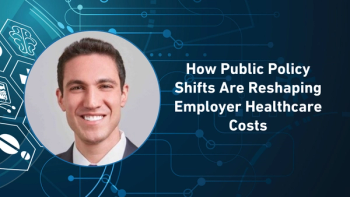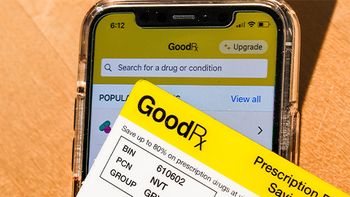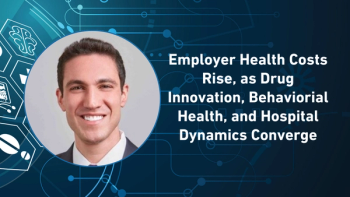
- Pharmaceutical Commerce - July/August 2015
Patient-centric support for specialty drug therapy--a new model to address the needs of a changing patient population
Today’s patient population is markedly different from that of generations past. Americans are turning age 65 at a rate of 8,000 per day*, a statistic projected to continue for the next 18 years, and multitudes of individuals among all age groups are stricken with more than one potentially fatal condition such as diabetes, hypertension, hypercholesterolemia, cancer and more. Coupled with steadily rising healthcare costs, specifically in the area of prescription drugs, these conditions create a need for patient-centric support that is more pressing now than at any previous time in history.
Delivering this support has been a challenge for drug manufacturers and payers alike as a myriad of specialized skill sets are required to navigate today’s healthcare landscape on the administrative side while simultaneously giving the patient full focus throughout an often difficult journey. Verifying benefits, securing prior authorizations, managing appeals when necessary, and providing educational and motivational outreach are all part of a comprehensive patient-centric solution.
The need for trusted support
Successful patient outcomes hinge on initiation and adherence. Remaining committed to therapy in its prescribed form and specified duration can often be derailed by a number of factors, both internal and external to the patient’s control. A sound case-management model where the patient is educated, empowered to take ownership of their care, and above all, made to feel as if they are not alone in their battle, is one of the driving factors that makes adherence a reality and gives successful outcomes a higher probability. The question is, though, which arm of the healthcare profession is most aptly suited to lead this model? Given these coordination and support needs, leading such a model requires a unique blend of healthcare knowledge and communication skills.
“Think of patients who have just been diagnosed with cancer,” says Joe Abdalla, RPh, VP of Market Access Solutions at TrialCard. “The physician will give the patients the news in the office, but they’re so overwhelmed that they don’t remember much of the discussion about the path forward regarding their treatment. They’re definitely not thinking of the various barriers and challenges that come along with their diagnosis.”
Abdalla’s assessment is telling, and highlights the impetus behind TrialCard’s new patient-focused approach and suite of Market Access Solutions. Recognizing the need for a full-suite of services among a fragmented array of stakeholders, which equates to frustration, and in many cases, a reduction in commitment to therapy on the part of the patient, the company set out to give manufacturers a way to bring multiple support functions together under the oversight of one of the healthcare professionals of greatest importance to the patient: a nurse.
Nurses have long been one of the most trusted healthcare professionals that patients interact with, more than their doctor, pharmacist, or anyone else. Combined with the fact that physicians are limited in the amount of time they can spend with patients and the increasing complexity associated with many new medications, the need for nursing support at the head of a patient support system is critical.
According to Gallup polls, for the last 11 years, nurses have been the most trusted profession by Americans. [2] Physicians, healthcare systems, manufacturers and most importantly patients, all rely on nurses to assess, teach and be a value-added asset to each patient’s journey. Once a patient is discharged from a hospital or physician’s office, the role of a nurse is to serve as the eyes and ears to their concerns and need for immediate follow up. For instance, the nurse can be the conduit to communicate health updates with the patient in the home to the physician and the health system, reducing the number of contacts and corresponding confusion to the patient.
Components of a Successful Patient Support Solution
While nursing oversight and leadership is at the core of this patient support model, having the right functions, and the people to manage them, in place is the groundwork upon which it is built. A large key to success is an approach that starts with the notion that no two patients’ needs are the same. Some will face financial barriers as their primary hurdle and require detailed affordability solutions, while others may need reimbursement support, potentially coupled with assistance from charitable foundations, to simply get access to the medications they need. Others lack knowledge of the complexities of their condition, leaving them susceptible to missing key steps in the treatment process relative to self-care. Yet another segment of the population may lack motivation and a support system surrounding them and feel as if their challenge is simply insurmountable, a belief that nearly all patients face to varying degrees at some point in their journey.
“We’ve seen the entire spectrum of patient needs among the programs we manage,” says Jonathan Savage, director of hub services at TrialCard. “When we sat down to conceptualize what the next generation of patient support would look like, we knew from direct experience that we had to have all of the tools at our disposal. People, processes and technology; it’s an age-old adage but it’s absolutely true here.” Savage, who has helped lead TrialCard’s Product Access Support Services group through its evolution over the past two years, sees his organization as the quintessential resource for patients, meaning no frustrating coordination nightmares or lack of information.
In addition to on-staff nursing expertise, and people, processes and technology, business intelligence and analytics resources are key requirements in today’s market place. TrialCard has a database of more than 150 million pharmacy claims encompassing 15 years of patient transactions. This allows its staff of five data scientists to analyze past trends and recommend patient-centric strategies. The company’s business intelligence platform can aggregate data at larger levels to help drive deeper discussions around program design and enhancements.
Access and education
Taking a practical approach to the question of what drives patients to adhere to therapy requires a holistic view of the patient experience. The primary goal in the early stages of any interaction is to get the product in the patient’s hands as quickly as possible.
Access is not only the first step on the road to completion of a treatment regimen but often times the most challenging as well. From benefits verification to prior authorization and appeals management and coordination between payers and physicians’ office staff, getting approved coverage for the product must be tackled with a sense of urgency.
Along with the administrative requirements related to coverage, specialty pharmacy triage is another key component of this equation that can be the difference between a smooth, quick start to treatment and a frustrating experience from the onset for a patient. Having established relationships with pharmacies, knowing which ones specialize in particular products, and understanding which have strong time-to-fill track records are all keys to success in this area. Additionally, TrialCard does not own or operate a specialty pharmacy, and thus remains “specialty pharmacy-agnostic,” allowing prescriptions to be triaged based on the needs of the patient first.
Medical expertise and comforting support
Once the patient has their medication in hand, education and motivational intervention become essential. Guidance on dosing, administration techniques, awareness of potential side effects, and what constitutes a successful outcome are common needs nearly all patients should understand, regardless of their condition or background. Abdalla draws on his experience as to why appropriate support and intervention are so critical. “An educated patient is an engaged patient, and an engaged patient is ultimately the most adherent,” he says. “Those who are informed and empowered definitely take a sense of ownership in their treatment and demonstrate a stronger and more sustainable commitment to therapy.”
This stage of the patient journey is where the value of nursing is truly displayed. The ability to communicate in a way that resonates, to educate when necessary but simply provide a compassionate ear at other times, enables nurses to add immeasurable value to this aspect of a patient’s treatment. Specifically, positive communication methods that keep the patient’s morale high are vastly more effective than techniques that come off as policing.
Patient communication is an art that is at the very core of the nursing profession. Check-in and follow-up communications are key to building this sense of trust and comfort. These interactions can involve walking a patient through how to administer their medication or reminding them when their next appointment is, while other times it’s just a simple call to see how they’re faring and remind them that they have a support system. Providing peace of mind that there is a medical professional on call to handle any unforeseen complications with treatment relieves a great deal of stress for patients and their caregivers.
Measuring outcomes
While all of the aforementioned elements of a holistic patient-support model speak to a focus on the patient by the appropriate healthcare professionals as the key to success, the role of data is just as critical in refining this process and driving constant improvement. Insights such as pharmacy metrics such as the fill date compared to the date the patient picks up the medication, or days’ supply written by the prescriber, allow TrialCard to design specific adherence cohorts to receive targeted messages. This data can also be used by a nurse from a patient assistance perspective to identify those who fill too soon or too late, and might be having an adherence issue, are on the incorrect dosage of their medication, or are prone to an adverse event. Additionally, payer denial statistics arm case managers with avenues to bypass many of the initial obstacles in the patient journey, while metrics on patient response to various interventions take the guesswork out of communication cadences.
Knowing that, for example, patients who receive two motivational check-in calls per month or an in-home education session are more likely to complete the duration of their therapy makes a powerful case for including such interventions in the full support protocol. The same dynamic applies for non-planned interventions such as nurse help line calls. Having data that can show a direct correlation to patient outcomes is one of the most effective ways to determine patient needs and design a successful product support program for the patient, their caregivers and healthcare providers.
Two case studies examining brands that implemented TrialCard’s patient intervention strategies demonstrate the compelling value of such communications. One, facing a crowded marketplace with little clinical differentiation from its competitors, saw patients refill an additional 1.2 times on average, translating into a 12:1 ROI for the program. Another, seeing a decline in its TRx volume post-LOE, garnered an average of 1.3 additional fills per patient for roughly $3.5 million in incremental revenue.
Understanding the needs of today’s patient and designing solutions that focus on the patient and caregiver experience represents a model for patient support that will only increase in demand and necessity as time goes on. With the healthcare landscape as complex as ever and patients needing individualized attention throughout their own unique journey, having the right skills in place to provide this support not only leads to more successful outcomes but also gives drug manufacturers a resource that can better fill this need than internal resources. With nursing leadership at the helm of patient and caregiver interactions, and by incorporating specific skill sets on the administrative side with a robust data capability to glean result metrics, the patient-focused support model serves to greatly increase the rate of successful patient outcomes.
TrialCard Inc. (Cary, NC; http://www.trialcard.com) provides product access, medication adherence and patient support services on behalf of pharmaceutical manufacturers. Founded in 2000, TrialCard has become the largest provider of patient access programs in the industry, processing over $1 billion in reimbursement benefits per year. TrialCard holds nine US patents related to the processing and marketing of patient access programs.
* “Baby Boomers Turning 65.” AARP The Magazine. http://www.aarp.org/personal-growth/transitions/boomers_65/, Web. 20 May 2015.
ABOUT THE AUTHOR
Dianne Higgins, RN-BSN, leads TrialCard’s Nursing Services division as director of Nursing Services. She has more than 25 years of healthcare experience on multiple fronts. She has served as a case manager at a level one trauma facility and has also held pharmaceutical sales and marketing leadership positions. Higgins is a graduate of D’Youville College in Buffalo, NY.
Articles in this issue
over 10 years ago
Manufacturers can support the ICD-10 transitionover 10 years ago
Building a cold-chain data networkover 10 years ago
Biotech manufacturing capacity is expanding in North Americaover 10 years ago
2015 PDMA Sharing Conferenceover 10 years ago
The Phase III pricing experimentover 10 years ago
Moving the needle on diabetesover 10 years ago
Product launch--the 21st-century wayover 10 years ago
Get better at managing clinical trial financialsover 10 years ago
A Conversation with Gary McWalters, TGaS AdvisorsNewsletter
Stay ahead in the life sciences industry with Pharmaceutical Commerce, the latest news, trends, and strategies in drug distribution, commercialization, and market access.




